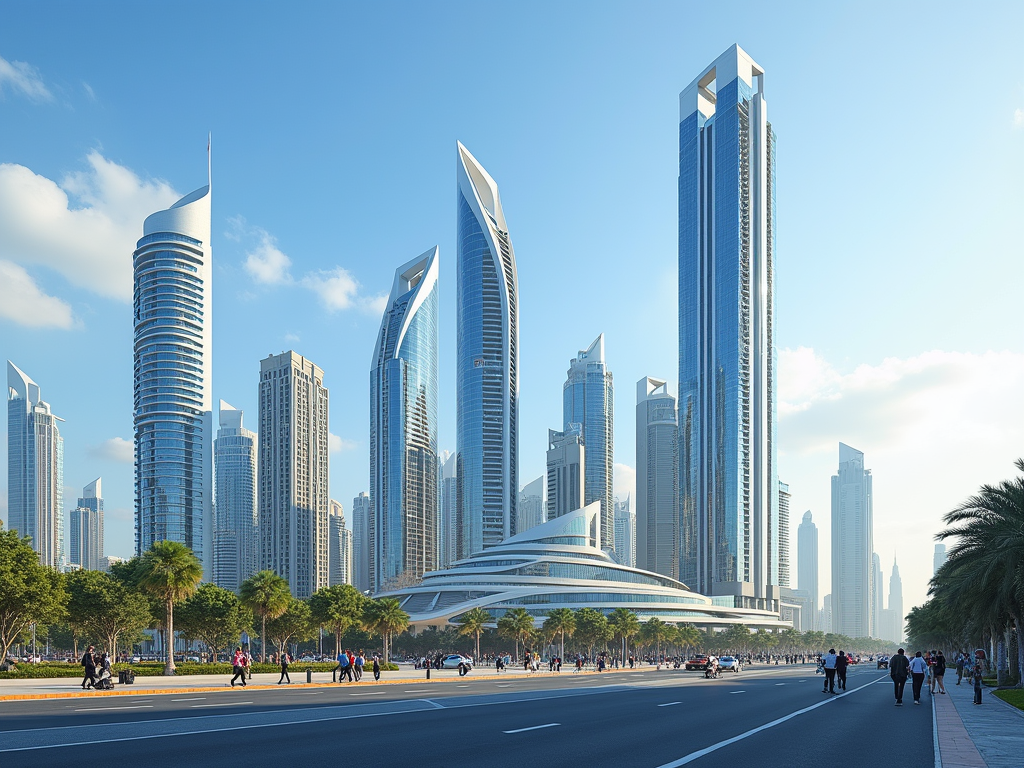Dubai’s visa and immigration policies play a pivotal role in shaping the dynamics of its real estate market. As a thriving global hub for business, tourism, and luxury living, the emirate’s policies attract a significant influx of expatriates and investors. This article explores the intricate relationship between these policies and the real estate sector, focusing on how they influence demand, property types, and market fluctuations.
The Role of Visa and Immigration Policies

Visa and immigration regulations are crucial in determining who can reside and invest in Dubai property. The UAE government has introduced various visa categories aimed at attracting foreign investment, talent, and longer-term residents. Key policies include:
- Golden Visa: A long-term residence visa for investors, entrepreneurs, and skilled professionals, allowing them to live in the UAE for up to 10 years.
- Retirement Visa: Designed for retirees over 55 years old, promoting residential purchases related to retirement living.
- Job-Seeker Visa: Enabling individuals to search for employment, stimulating demand for rental properties.
These policies encourage more foreigners to consider Dubai as a potential home, directly increasing the demand for residential and commercial properties. Moreover, flexible regulations make it easier for individuals to relocate and invest, substantially expanding the buyer pool in the real estate market.
Impact on Property Types and Infrastructural Development

The diversification of visa categories has led to varying demands for specific types of properties. For instance, the influx of wealthier expatriates and investors because of the Golden Visa has resulted in heightened interest in luxury apartments and villas, which in turn spurs development in high-end neighborhoods. Similarly, the job-seeker and retirement visas have increased the demand for mid-range housing options.
This trend has encouraged developers to create projects that cater to all demographics. Specifically, the UAE has seen an increase in:
- Luxury high-rise apartments
- Affordable housing projects
- Gated communities
- Mixed-use developments
The result is urban growth that aligns with the diverse needs of the expatriate population while promoting infrastructural improvements throughout the city. As more residents arrive, enhanced public transportation, amenities, and services continue to be developed, making Dubai more appealing.
Market Fluctuations and Investor Confidence
Visa policies not only affect property types but also impact market fluctuations and investor confidence. When the government announces favorable visa regulations, there is often an uptick in property demand, resulting in rising prices. Conversely, any tightening of immigration rules can lead to hesitancy among potential investors, causing a downturn in the market.
For instance, during periods of consistent and attractive visa offerings, such as the introduction of the long-term Golden Visa program, the real estate market typically experiences growth. Investors feel more assured that their investment will be secure, knowing they can reside in the UAE for extended periods. Moreover, the following factors are closely linked to investor confidence:
- The transparency of policies and their effective implementation.
- The political stability and safety of the region.
- The overall economic climate and growth potential of the UAE.
These elements combine to build a stable investment environment that encourages both local and international investors to participate actively in the real estate sector.
Consequences for Rental Markets
Diverse visa policies significantly influence rental markets, as they boost the number of expatriates residing in Dubai. As the expatriate community grows, so does the demand for rental properties, ranging from short-term vacation rentals to long-term leases. The increasing population has led to distinct trends within the rental market:
- Increased demand for furnished rentals: Many expats prefer movable, furnished housing as they transition into Dubai life.
- Growing rental yields: The competitive market attracts investors seeking buy-to-let properties.
- Short-term rentals: The rise of platforms like Airbnb has led to a demand for short-term accommodation options.
This dynamic environment creates lucrative opportunities for landlords and real estate developers alike, while simultaneously providing expats with a range of housing choices to accommodate their varying needs.
Conclusion
The interplay between Dubai’s visa and immigration policies and the real estate market is multifaceted and significant. These policies not only drive demand for various types of properties but also bolster investor confidence and contribute to market fluctuations. As attractive visa regulations continue to shape the emirate’s expat landscape, we can expect sustained growth in the real estate sector. The future of Dubai’s real estate market appears bright, fueled by an ever-diversifying populace and ongoing infrastructural development.
Frequently Asked Questions
1. What is a Golden Visa in Dubai?
The Golden Visa is a long-term residence visa that allows foreign nationals to live, work, and study in the UAE. It is primarily aimed at investors, entrepreneurs, and skilled professionals, extending for up to 10 years.
2. How does the retirement visa work in Dubai?
The retirement visa is designed for individuals aged 55 and older. It allows qualifying retirees to live in Dubai and enjoy the city’s amenities, provided they meet specific financial criteria.
3. What types of properties are in high demand in Dubai?
High demand properties typically include luxury high-rise apartments, villas in gated communities, affordable housing, and mixed-use developments catering to all demographics of expatriates.
4. How do visa policies affect rental prices in Dubai?
When visa policies are favorable, there is often an increase in demand for rental properties, leading to higher rental prices. Conversely, restrictive policies may lead to a downturn in the rental market.
5. What is the impact of expatriates on Dubai’s real estate market?
Expatriates significantly contribute to the growth of Dubai’s real estate market by boosting demand for both rental and purchase properties, thus driving up property prices and stimulating infrastructural development.
